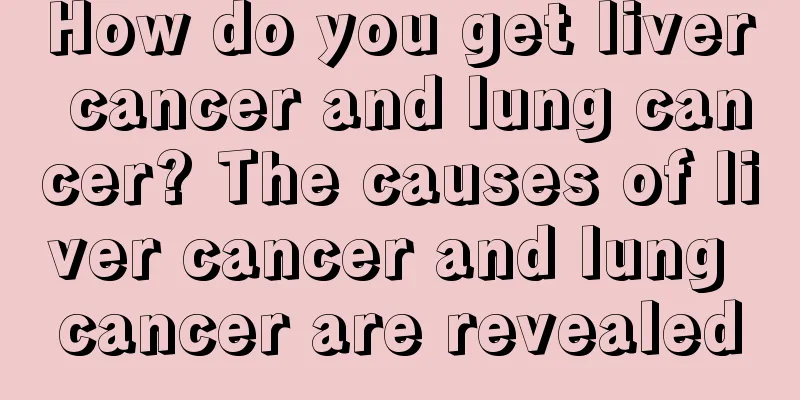Common causes of vertigo, is it related to heart disease?

|
Although the pressure of life is not as great as before and people do not need to go out to work, sitting in the office for a long time facing multiple electronic products will cause people to have dizziness. In addition to being caused by exposure to radiation, dizziness can also be caused by intracranial infection, tumors, and vascular sclerosis. It is not ruled out that dizziness is caused by unstable blood pressure, anemia, poor rest, and vascular strain. Dizziness, also known as vertigo, is a subjective sensory abnormality. There are two categories: One is rotational vertigo, which is mostly caused by dysfunction of the vestibular nervous system and cerebellum. It is mainly characterized by a feeling of tipping over, with a feeling of oneself swaying or the scenery rotating. The second is general dizziness, which is mostly caused by certain systemic diseases, and is mainly characterized by a feeling of dizziness and a feeling of heaviness in the head and lightness in the feet. 1. Rotational vertigo can be divided into two categories according to its cause: peripheral vertigo and central vertigo. (1) Peripheral vertigo: refers to vertigo caused by lesions in the inner ear labyrinth or vestibular nerve. It is common in Meniere's disease (formerly Meniere's disease), labyrinthitis, drug-induced vertigo (caused by the use of drugs such as streptomycin or gentamicin) and vestibular neuritis. (2) Central vertigo: refers to vertigo caused by lesions of the brainstem, cerebellum, cerebrum and spinal cord. It is common in vertebral-basilar artery insufficiency, intracranial tumors, intracranial infection, multiple sclerosis, vertigo epilepsy and traumatic vertigo. 2. General vertigo (1) Cardiac vertigo: common in arrhythmias, heart failure, etc. (2) Pulmonary vertigo: can be seen in lung dysfunction caused by various reasons. (3) Ocular vertigo: common in refractive errors, retinal arteriosclerosis, hemorrhage and ophthalmoplegia. (4) Hypertensive vertigo: Both high blood pressure and low blood pressure can cause vertigo. (5) Others: Anemia, cervical spondylosis, acute fever, gastroenteritis, endocrine disorders and neurosis can all cause dizziness. 1. If an elderly person with anemia experiences dizziness, fatigue, or pale complexion, he or she should go to the hospital for a check-up to see if he or she has anemia. If the elderly do not pay attention to nutritional health, they are likely to suffer from anemia. In addition, elderly patients with indigestion, peptic ulcer, gastrointestinal bleeding and chronic inflammatory diseases may all develop secondary anemia. 2. High blood viscosity Hyperlipidemia, thrombocythemia, etc. can cause high blood viscosity and slow blood flow, resulting in insufficient blood supply to the brain and symptoms such as fatigue, dizziness, and weakness. There are many reasons for high blood lipids, the most important of which is unreasonable diet structure. 3. Patients with cerebral arteriosclerosis feel dizzy and often suffer from insomnia, tinnitus, emotional instability, forgetfulness, and numbness in the limbs. Cerebral arteriosclerosis reduces the inner diameter of blood vessels, reduces blood flow in the brain, causes insufficient blood and oxygen supply to the brain, and causes dizziness. 4. Cervical spondylosis often causes tightness in the neck, limited flexibility, occasional pain, numbness, coldness, and a feeling of heaviness in the fingers. Cervical spondylosis compresses the cervical vertebral arteries, causing insufficient blood supply to the brain, which is the main cause of dizziness caused by this disease. 5. Hypertension In addition to dizziness, patients with hypertension often also experience discomfort such as headache, palpitations, irritability, tinnitus, and insomnia. 6. Heart disease In the early stages of coronary heart disease, some people may experience headaches, dizziness, weakness in the limbs, and difficulty concentrating. Dizziness is mainly caused by atherosclerosis of the coronary arteries of the heart, resulting in insufficient blood supply. |
<<: What causes high insulin levels and how should it be treated?
>>: How to regulate insufficient heart blood? Five foods that work wonders
Recommend
Is chemotherapy meaningful for stage IV rectal cancer?
Generally speaking, chemotherapy for stage IV col...
How much does it cost to treat bladder cancer in the middle and late stages with traditional Chinese medicine?
Bladder cancer is the most common tumor disease i...
What medicine to take for allergic nasopharyngitis
People's bodies are very sensitive and are af...
How to remove onychomycosis
After suffering from onychomycosis, you must take...
Gastrointestinal growing pains
As many people know, the gastrointestinal tract i...
Why does stinging and redness occur when using skin care products?
Skin care products are commonly used beauty and s...
Glasses to control myopia
Affected by various factors in life, the number o...
What to use to wash vegetables to remove pesticide residues
Vegetables are a kind of food that people often e...
How to relieve tension dizziness
For friends who often suffer from tension dizzine...
Dietary conditioning for patients with cervical cancer
Cervical cancer can be described as a "healt...
Does painless hematuria necessarily mean bladder cancer?
Hematuria is not necessarily a bladder tumor, but...
What are the treatments for lung cancer? Two of the most commonly used treatments for lung cancer
When people are diagnosed with lung cancer, due t...
What is the difference between Cherry axis and domestic axis?
In daily life, the keyboard is one of the standar...
Can nasopharyngeal carcinoma be cured in the early stages?
Nasopharyngeal cancer is a regional and familial ...
The role of garnet
Garnet is a very common gem nowadays. It has many...









